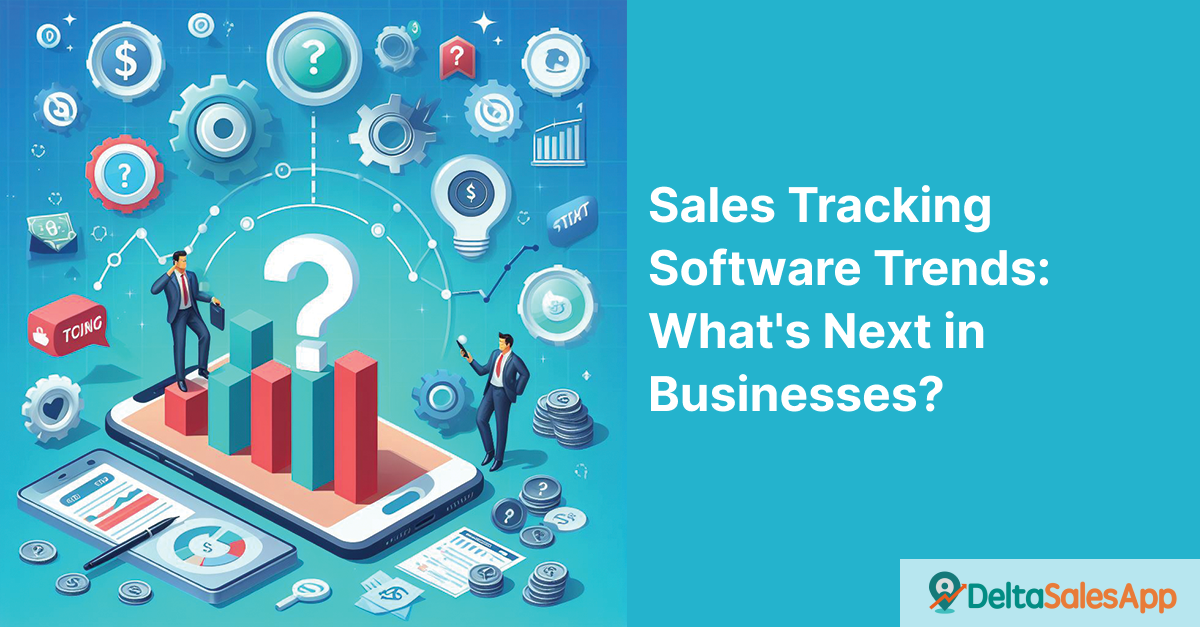Sales Tracking Software Trends: What's Next in Businesses?

Navigating the modern business world without keystone technology like sales tracking software would be akin to flying blind. The ability to monitor sales performance, analyze customer data, and forecast future trends is what empowers businesses to stay competitive. The software market has seen a continual evolution to meet the growing and varied needs of companies across industries. From startups to multinational corporations, sales tracking software is indispensable in streamlining operations, enhancing customer relationships, and ensuring data-driven decisions lead the way.
In this deep dive into the world of sales tracking software, we’ll explore current trends, predict future developments, and dissect the impact on businesses. We’ll also provide insights into best practices and recommendations for businesses looking to leverage the full potential of these tools.
The Sales Tracker’s Evolution
Current State of Sales Tracking Software:
The present innovative landscape of sales tracking software is marked by several key trends. Real-time analytics has shifted the goalposts of how sales teams can respond to market shifts and customer behavior. AI integration transforms raw data into actionable insights, enhancing sales strategies and customer relations. The blossoming of mobile accessibility has facilitated a more agile workforce, ensuring that data is available at the fingertips of sales professionals, wherever they are.
Through detailed case studies, it becomes apparent that early adopters of these trends have gained a significant edge. Integrating real-time analytics, for instance, allows companies to adjust pricing strategies on the fly, leading to immediate revenue gains. AI-assisted insights have empowered sales teams to personalize pitches, leading to increased conversion rates. Additionally, mobile accessibility has nurtured remote teams and expanded market reach.
Future Trends in Sales Tracking Software:
Predicting the future of sales tracking software isn't just looking into a crystal ball; it’s a logical extension of current technological trajectories. The coming years will likely see the proliferation of predictive analytics, a facet that empowers businesses to forecast sales with uncanny precision. Enhanced data security measures will be on the rise, not only to protect valuable data but also to ensure compliance with stringent global data protection regulations like GDPR.
Machine learning is anticipated to play a more prominent role. In conjunction with AI, it can automate the sales process to a greater extent, such as lead scoring and performance trend analysis. This will free up sales professionals for higher-value activities, such as building stronger customer relationships. Industry experts underscore the need for businesses to not only anticipate these changes but to be prepared for them.
The Impact on Businesses:
The potential for sales tracking software to revolutionize business is considerable. Enhanced decision-making, the backbone of any successful business operation, is one domain where the impact is profound. Real-time data means real-time decisions that can seize opportunities and mitigate risks promptly.
Improved efficiency is the second significant impact. Automation of routine tasks through the software frees up human resources for complex, creative, and customer-centric roles. Finally, the ripple effect of these software trends culminates in delivering superior customer experiences. With a wealth of data at their disposal, sales teams can offer tailored solutions and preemptively address customer needs.
However, there are challenges. One of the most significant hurdles for businesses is the phasing out of legacy systems and the heightened need for digital literacy among staff. Ensuring a smooth transition requires strategic planning, employee training, and change management. Data silos and miscommunication between departments are other pertinent issues that warrant attention.
Navigating the Torrential Tides
Best Practices and Recommendations:
Staying ahead means selecting the right software and using it effectively. Businesses must begin by evaluating their needs and exploring the myriad features offered by different solutions. It is essential to choose software that aligns with the specific goals, size, and nature of your business. Scalability is also a crucial factor, with companies needing software that can grow with them.
Implementation involves more than just installing the software. It requires an organizational shift towards a data-driven culture, with clear communication of its benefits to all stakeholders. It's equally important to not just rely on software but to supplement it with human ingenuity. Sales tracking software is a tool, and tools need a skilled craftsman.
Conclusion:
In conclusion, the relevance and application of sales tracking software will only grow as businesses continue to harness the power of digital transformation. Companies that remain informed and agile are well-placed to capitalize on these evolving software trends. Whether it's staying atop the latest analytics or ensuring secure data handling, the commitment to constant improvement will be a defining characteristic of successful enterprises.
The call to action for businesses is clear: engage with emerging trends, train and empower your workforce, and ensure that you are using sales tracking software as the most potent ally it can be. By doing so, you not only stay abreast of the competition but are also at the forefront of redefining business practices for a digital future.
FAQs:
Q.What is sales tracking software, and why do businesses need it?
A. Sales tracking software helps monitor sales, analyze data, and forecast trends, which are crucial for data-driven decisions and improving competitiveness.
Q. What are the current trends in sales tracking software?
A. Trends include real-time analytics, AI integration, and mobile accessibility, enhancing sales teams' agility and decision-making.
Q. What can businesses expect from future sales tracking software?
A. Future trends may include predictive analytics, enhanced data security, and increased automation through machine learning.
Q. What impact does sales tracking software have on businesses?
A. It improves decision-making, boosts efficiency, and enhances customer experiences, leading to better satisfaction and loyalty.
Q. What challenges might businesses face with sales tracking software implementation?
A. Challenges include phasing out legacy systems, staff digital literacy, and overcoming data silos and miscommunication between departments.









